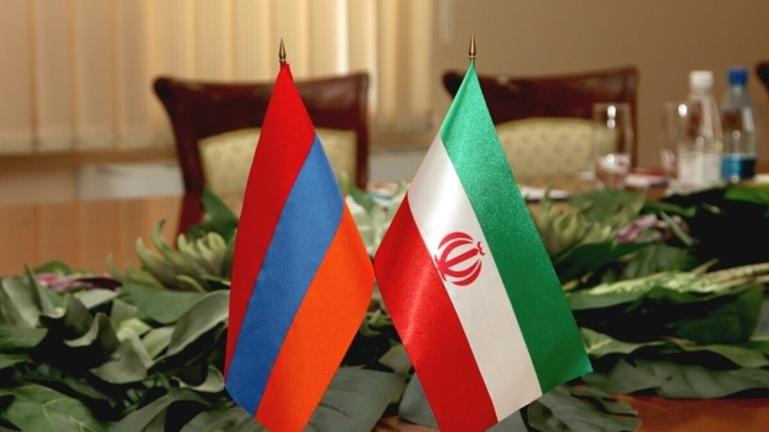
Tehran attaches importance to preserving the territorial integrity of Armenia and preventing geopolitical shifts, says Special Eurasia
The potential establishment of the so-called “Zangezur Corridor” through Armenian territory by Azerbaijan is perceived as detrimental to the strategic interests of both Iran and the Gulf states, Special Eurasia says in an extensive report.
As noted, highlighting Tehran’s stance on regional stability, his address stressed the importance of an Armenian-Azerbaijani peace agreement and the Armenia-Iran corridor’s geopolitical significance. Khatibzadeh reiterated Tehran’s long-standing position that any initiative resulting in a change to the region’s geopolitical map is unacceptable. He emphasized that all connectivity efforts must respect existing territorial arrangements and refrain from altering sovereignty, specifically referencing the so-called “Zangezur Corridor” advocated by Azerbaijan.
As noted, in its efforts to resolve tensions between Yerevan and Baku, Tehran has supported the diversification of regional connectivity and transportation corridors, alongside endorsing the peace agreement that Armenia has expressed readiness to sign with Azerbaijan. In particular, to address the contentious issue of linking mainland Azerbaijan with its Nakhijevan exclave, without resorting to military force or infringing upon Armenia’s Syunik province, Tehran proposed and developed the Araz Corridor in cooperation with Baku. This route traverses Iranian territory and offers an alternative to the “Zangezur Corridor”.
However, Azerbaijan has introduced several controversial preconditions to the peace process. One such demand was the dissolution of the OSCE Minsk Group.
The article notes that this demand becomes even more concerning in light of Baku’s increasing references to approximately 60% of Armenia’s internationally recognized territory as “Western Azerbaijan”. These actions raise serious questions about Baku’s intentions and the viability of future negotiations.
The website states that recent remarks by U.S. Secretary of State Marco Rubio, highlighting efforts by the current U.S. administration to prevent a potential Azerbaijani invasion of Armenia, further validate the concerns regarding the risks of escalation.
Another point that the newspaper drew attention to is that for Iran, Armenia represents the only member state of the Eurasian Economic Union (EAEU) with which it shares a direct land border. This translates into access to a domestic market of 3 million and a potential gateway to 200 million consumers within the EAEU. To maximize the potential of this economic link, Tehran opened a trade center in Yerevan. For landlocked Armenia, Iran has consistently served as a crucial conduit to the Persian Gulf. Moreover, the Islamic Republic is uniquely positioned as the only country that physically connects the Persian Gulf to the Caspian Sea, two regions that together account for nearly 70% of the world’s conventional oil and gas reserves. With Armenia’s borders with Turkey and Azerbaijan effectively closed, Tehran has become Yerevan’s vital logistical and supply corridor.
As noted, the recent first joint military exercises conducted by Armenia and Iran along the Norduz–Agarak border crossing, previously secured by personnel from the Russian Federal Security Service (FSB), highlighted the two countries’ shared commitment to safeguarding this vital transit corridor. The drills underscored the strategic importance both sides attach to the stability and security of their direct border link.
In parallel, joint military exercises between Tehran and Baku were also held, with the stated aim of enhancing mutual trust, as emphasized by the Azerbaijani Ministry of Defense.
The website states that Iran’s evolving posture in the South Caucasus reflects a strategic recalibration driven by geography, energy corridors, and regional stability imperatives. Tehran views the preservation of Armenia’s territorial integrity and the prevention of externally imposed geopolitical shifts, such as the establishment of the so-called “Zangezur Corridor”, as critical to maintaining the current regional order. The intensification of Iranian-Armenian diplomatic and security cooperation, alongside Tehran’s parallel engagement with Baku, illustrates the Islamic Republic’s attempt to balance competing interests while safeguarding its own strategic corridors.
At the same time, Tehran’s rhetoric and actions underscore its red lines regarding any unilateral territorial or political rearrangements.
Moreover, against the backdrop of increasing U.S. engagement in the region, following the signing of a strategic partnership agreement between Yerevan and Washington under the Biden administration, Ali Akbar Ahmadian, Secretary of Iran’s Supreme National Security Council (SNSC), stated that Tehran will not allow any foreign influence to undermine its strategic partnership with Armenia.
In this complex and competitive geopolitical landscape, Iran’s emphasis on legality, sovereignty, and regional dialogue signals a preference for structured engagement over destabilizing rivalry.


